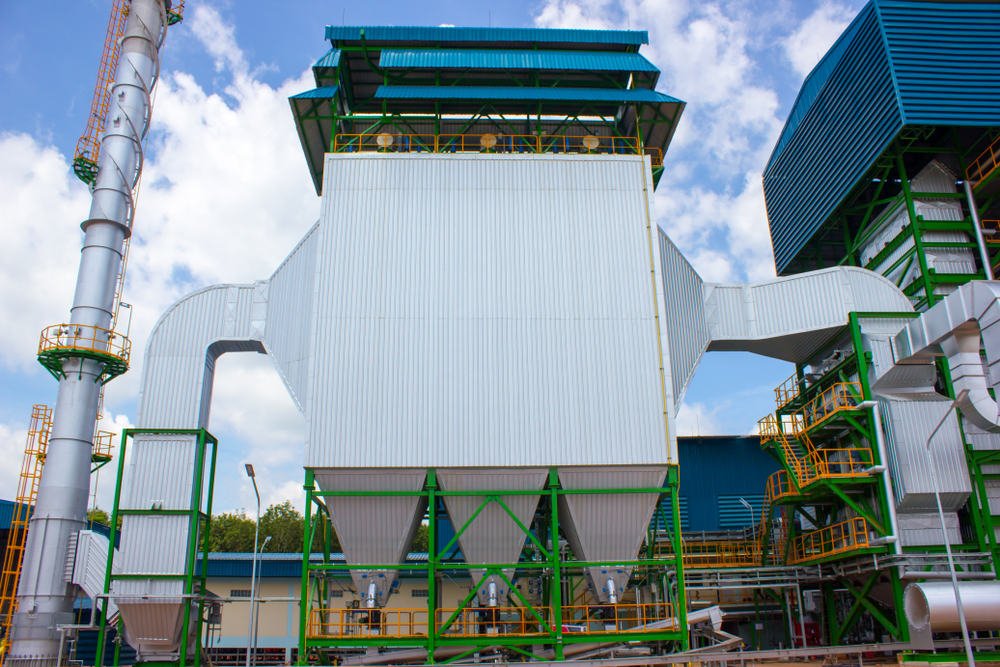Industries such as chemical processing, agriculture, metal, woodworking, food, and pharmaceuticals release a great deal of dust into the environment. Therefore, everyone working in the place suffers a lot from it and sometimes it becomes a health hazard. However, there is a solution for that too. Installing a dust collector for your firm to cope with this case is vital.
Dust control systems: What is it
Production facilities, industrial complexes, and workshops use dust collectors to remove harmful airborne particles. The system scrubs the air by pushing it through tight air filters. As soon as the air is clean, it is either recirculated or removed outside.
It is essential for a company that produces a large number of ambient gases and dust particles to have a dust collector unit because of government policies. It is to keep all their workers safe.
Dust control systems: Working
Through the use of a filtering system, dust collectors gather particulates from a given application. Either way, the clean air is returned to the facility or exhausted into the atmosphere.
Dust control systems: Types
Depending on the application, dust collectors for industrial use can be either a wet collector or a dry cyclone.
The unit of a wet dust collector has a water supply. The system sprays water at high pressure from all sides after activation. Air in the inflowing stream fades combustion materials. In this way, in-unit cleaning minimizes fire risks.
Dry-running cyclones, like vacuum cleaners, use centrifugal force to draw the air inside of it. It will gather all likely toxins in a unique filter bag. It protects your lungs from harmful pollutants.
Dust control systems: Factors to think about when buying a new unit
Dust collector units purify the air by removing harmful particles from the air. The majority of their usage is in different sectors.
- Requirement for dust collection
Before deciding on the required air volume to control dust, it is important to consider all operational needs. It is necessary to capture different operational needs before determining the required air volume to control dust. Now you can choose a suitable dust collector unit depending on your needs.
- Customized dust collecting unit
A dust collector may not meet each client’s needs with all the usual features. It is vital to check whether the supplier offers customized dust collecting units.
The size of dust collectors often requires customization. Therefore, it is vital to enquire whether the offers supplier can change the dust collector.
- Easy installation of dust collector
The size and site of the dust collector are the primary facets for an easy installation. Before installing a dust collector unit, look at the manual to specify the vital tools for installation.
Dust control systems: Benefits

- Enhance health and safety
Dust, dirt, and debris in this polluted air can harm the lungs of anyone inhaling it. However, they can also particulate on or near tools, causing a great fire risk. By cutting these hurtful particles from the air, the dust collector unit makes breathing safer for everyone.
- Enhances productivity
A lot of dust, debris, and dirt on the machine and equipment will deter its mechanics. Furthermore, this can lead to busted and slower machines and tools. But damaged machinery always needs watch and maintenance. The dust collectors allow your machine to work at its best.
- A higher standard of quality
When there is dust in the air, it can gather on the products thru the process of making. As a result, the final product may suffer in quality. However, dust collectors decline the air’s dust, smoke, and fuel. It also brings clients joy by keeping them away from the finished product.
Conclusion!
The dust collector is an integral part of the industry. There are many dust collection units, and their use relies on the type of business. By fitting them, you can cut the risk of damage to your machinery and workers.





